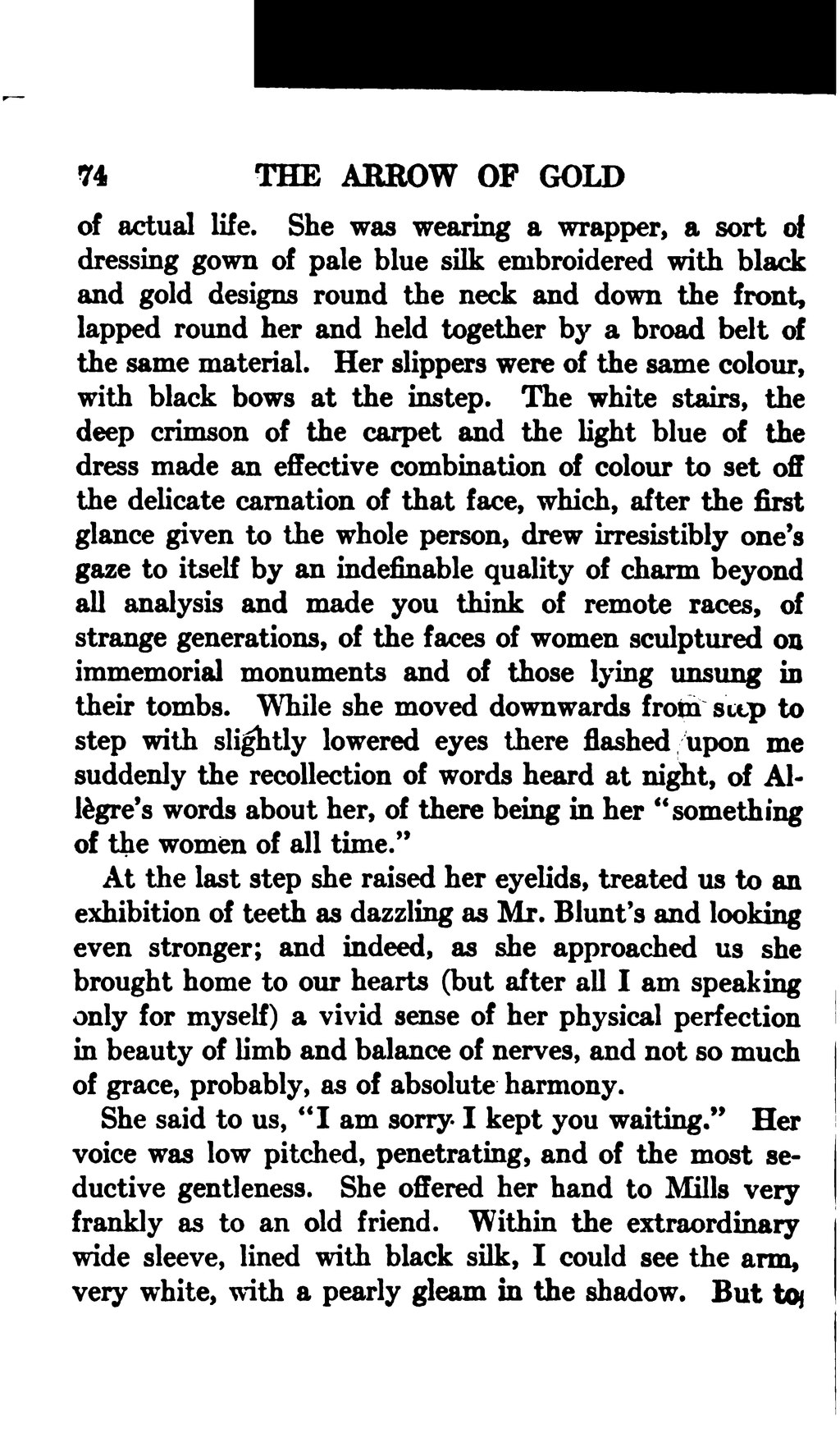of actual life. She was wearing a wrapper, a sort of dressing-gown of pale blue silk embroidered with black and gold designs round the neck and down the front, lapped round her and held together by a broad belt of the same material. Her slippers were of the same colour, with black bows at the instep. The white stairs, the deep crimson of the carpet, and the light blue of the dress made an effective combination of colour to set off the delicate carnation of that face, which, after the first glance given to the whole person, drew irresistibly your gaze to itself by an indefinable quality of charm beyond all analysis and made you think of remote races, of strange generations, of the faces of women sculptured on immemorial monuments and of those lying unsung in their tombs. While she moved downwards from step to step with slightly lowered eyes there flashed upon me suddenly the recollection of words heard at night, of Allègre's words about her, of there being in her "something of the women of all time."
At the last step she raised her eyelids, treated us to an exhibition of teeth as dazzling as Mr. Blunt's and looking even stronger; and indeed, as she approached us she brought home to our hearts (but after all I am speaking only for myself) a vivid sense of her physical perfection in beauty of limb and balance of nerves, and not so much of grace, probably, as of absolute harmony.
She said to us, "I am sorry I kept you waiting." Her voice was low pitched, penetrating, and of the most seductive gentleness. She offered her hand to Mills very frankly as to an old friend. Within the extraordinarily wide sleeve, lined with black silk, I could see the arm, very white, with a pearly gleam in the shadow. But to
